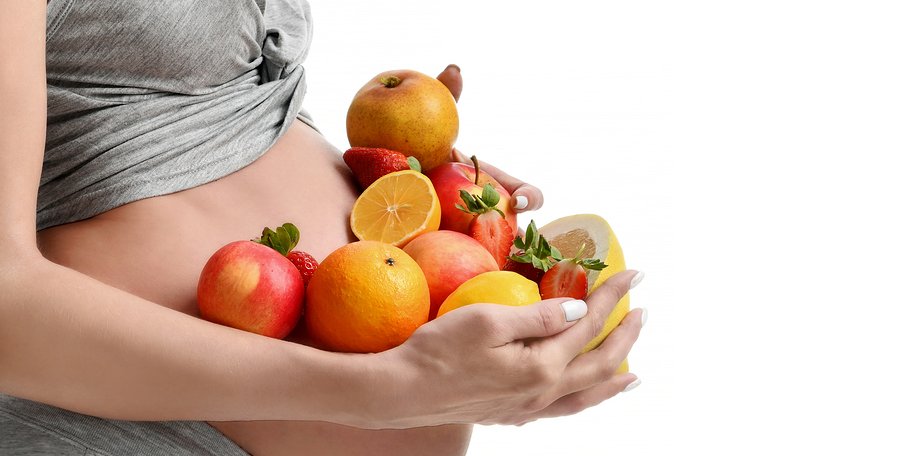We are all well aware that what we eat can affect our health for better or worse over time. It impacts our risk for serious, chronic conditions such as diabetes and cardiovascular disease. But if you’re relatively young and healthy, you might not associate your dietary habits with any short-term physical problems, and especially not with your fertility. However, new research suggests that if you’re thinking about trying to conceive some time soon, you might want to choose your meals carefully.
The study, which took place at the Robinson Research Institute at the University of Adelaide in Australia, found that regular consumption of fast food meals doubles the risk of infertility, while greater fruit consumption may help speed conception.1 Grieger, Jessica A.; et al. “Pre-pregnancy fast food and fruit intake is associated with time to pregnancy.” Human Reproduction. 4 May 2018. Accessed 13 May 2018. http://academic.oup.com/humrep/advance-article/doi/10.1093/humrep/dey079/4989162. These results are based on an investigation that involved 5,598 women between the ages of 18 and 43. The subjects were all in the early stages of their first pregnancy and resided in Australia, New Zealand, the United Kingdom, and Ireland.
Data was collected on each participant by the midwives caring for them. The researchers provided the midwives with questions to ask regarding the diets of the women for the month before they became pregnant, the length of time it took each woman to conceive once actively trying, and whether any fertility treatment had been undertaken to become pregnant. Infertility was defined as an inability to become pregnant after trying for a full year. Therefore, even though all of the subjects had conceived, eight percent of them experienced infertility by that definition.
When the dietary information was assessed in comparison to the fertility rates, it became clear that the foods eaten made a major impact. The risk of infertility doubled from eight percent to 16 percent in those who reported consuming four or more servings of fast food every week, which included items like pizza, burgers, fried chicken, and chips. And among the women who consumed the least fruit, the rate rose from eight percent to 12 percent, a 50 percent increase.
Among the volunteers who were not considered infertile, diets also affected how long it took to conceive. Those who typically ate fast food four times a week or more took an average of a month longer to become pregnant than their peers who never dined on fast food. And fruit came into play here as well, with those who consumed fruit three times a day or more becoming pregnant half a month more quickly on average than their counterparts who only ate a few servings of fruit over a month. Interestingly, no association was found between infertility and other foods, even other healthy options such as vegetables and fish.
The researchers controlled for potentially influential factors including the mother’s age, smoking and alcohol use, and body mass index, and the results held steady. The study was not designed to prove cause and effect, but it certainly demonstrated a link between the type of foods we eat and the ability to become pregnant more quickly and easily. It was somewhat limited by the short period of time included in the survey as well as by relying on the participants’ memories of what they had eaten.
Yet regardless of these shortcomings, the findings are in line with those of other research that has shown how profoundly our dietary choices can affect our fertility. A 2012 study at the Harvard School of Public Health found that when men eat fatty, unhealthy food, their sperm lose the ability to move vigorously enough to make the journey all the way up the ovarian tube.2 Gaskins, Audrey J.; et al. “Dietary patterns and semen quality in young men.” Human Reproduction. 11 August 2012. Accessed 14 May 2018. http://academic.oup.com/humrep/article/27/10/2899/751651.
This is a good reminder that as soon as you are even thinking about trying to conceive, you should consider making improvements to your diet and overall lifestyle if necessary. You will give yourself the best chances of not only getting pregnant sooner, but of having a pregnancy with fewer complications and a healthy baby. It is important for both the mom- and dad-to-be to make some changes for the better so work together to choose nutritious foods and exercise daily. To learn more about potential risks to your fertility and what you can do to counter them, read Jon Barron’s article entitled Fertility: the Canary in the Coal Mine. Also, check out Jon Barron’s article on Supplements from Preconception On Up.
References
| ↑1 | Grieger, Jessica A.; et al. “Pre-pregnancy fast food and fruit intake is associated with time to pregnancy.” Human Reproduction. 4 May 2018. Accessed 13 May 2018. http://academic.oup.com/humrep/advance-article/doi/10.1093/humrep/dey079/4989162. |
|---|---|
| ↑2 | Gaskins, Audrey J.; et al. “Dietary patterns and semen quality in young men.” Human Reproduction. 11 August 2012. Accessed 14 May 2018. http://academic.oup.com/humrep/article/27/10/2899/751651. |











